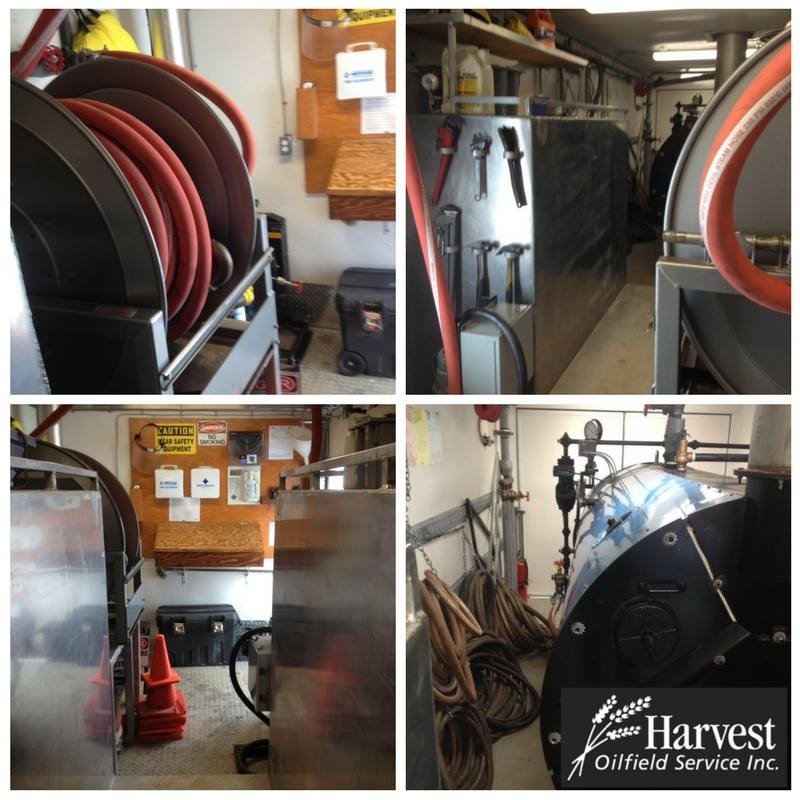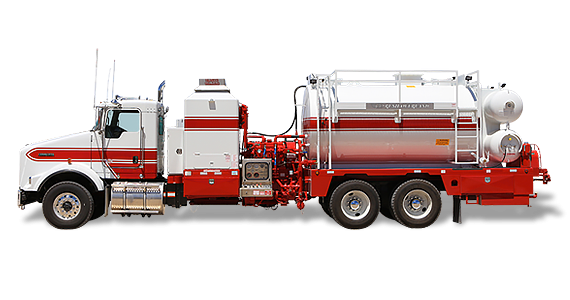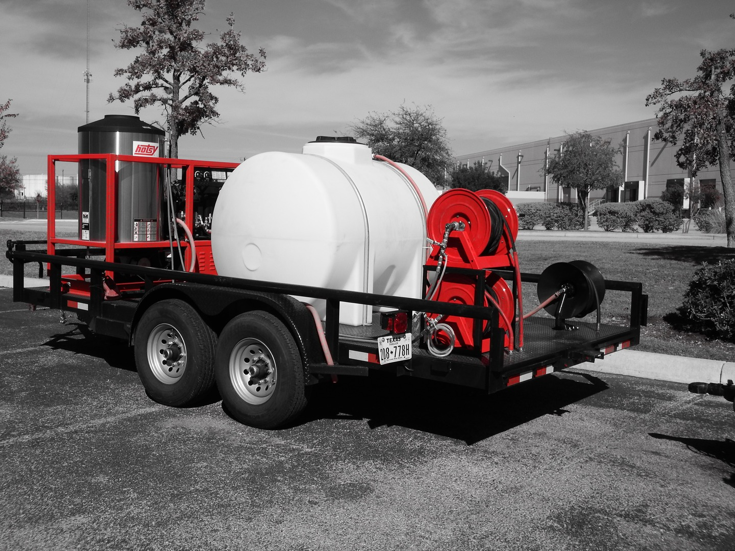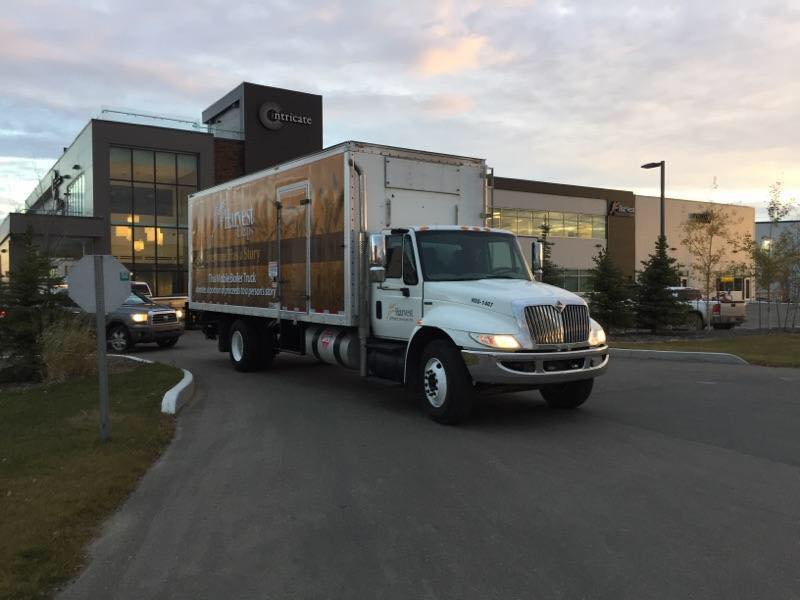During the fall and winter months, it’s crucial for oil and gas production to think about how they plan to keep their pipes and product from freezing. While freezing leads to many problems, there are several cost-efficient and effective solutions to prevent them.
There are various options to consider – such as boilers, hot oilers, and steamers, but what is the difference between these heat utilities?
We may be a little biased, but the best option, is to use a mobile boiler truck.

Boilers
One type of boiler is a fire-tube boiler, in which hot gases pass from a fire through several tubes running through a sealed vessel filled with water. The heat of the gases is transferred through the walls of the tubes by thermal conduction, heating the water and ultimately creating steam. The vessel operates at a pressure of 100 psi allowing for a lot of stored heat energy. Steam at 100 psi equates to a temperature of 169.9 degrees celsius. Boilers have the ability to supply a very dry steam with little to no water being produced when running efficiently.
Mobile boiler trucks are less cumbersome when you factor in picking, trucking or operator charge outs. They are self-contained, mobile and ready to go. No cranes or rigging required; no need for special handling to load or unload boilers at the worksite.
Another option to preventing freezing challenges during the cold months would be the use of a hot oiler truck.
Hot Oilers
Hot oilers are equipped with high efficiency heaters and have a quick warm up time and high output capability, typically used to remove wax deposits from the upper wellbore section of wells in cold weather conditions where low wellhead temperatures increases the vulnerability of heavy crude oil to wax precipitation. Hot oilers can produce pressures as high as 5000 psi and have a heating capacity range from 5 1/2 – 16 Million BTU. Hot oilers have the ability to circulate any fluid you want to run through them. They have a suction and discharge line and the pump circulates the fluid that is in need of heating through the coil. Hot oilers do not make steam because they do not have onboard water. They are only used to heat fluid. A hot oiler is essentially a pressure truck with a heating unit on it and the heat is provided by burning diesel fuel.

Photo: http://rushoverland.com
Another option in the oil and gas industry is to use a steam truck or “steamer”.
Steamers
Steamers or steam trucks operate on the same principal as a hot oiler does. Water is pumped through a coil that is in contact with a large flame produced by a diesel burning burner heating the water to a selected temperature. Steam Trucks usually have a 3000 psi pressure capability at a much smaller volume when compared to a hot oiler. Steamers generally have the heating capacity around the 1 Million BTU range.

Steam trucks are typically smaller and have a lighter weight when compared to a boiler or a hot oiler. They have the ability to pressure wash, but do not have the heating capabilities or versatility of a boiler or hot oiler. Steamers also do not produce dry steam like a boiler does. Steam Trucks are basically mobile pressure washers with heating capabilities.
Utility heating is an integral part of the oil and gas industry, whichever heating source you decide to use. Intricate’s sister company Harvest Oilfield Service offers mobile boilers throughout work sites within Alberta, British Columbia, and Saskatchewan. Harvest boiler trucks are efficient, safe and eliminate the logistics and planning as they are self-contained, mobile and ready to go.
When you need a reliable, hardworking, industry compliant company to provide you heat, call on Harvest!
Check out other Intricate blogs: Why Integrating Your Maintenance Services Makes Cents


